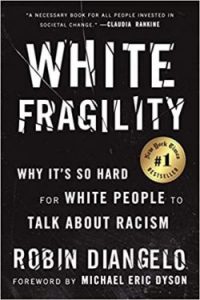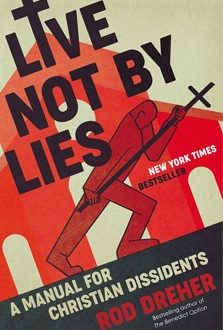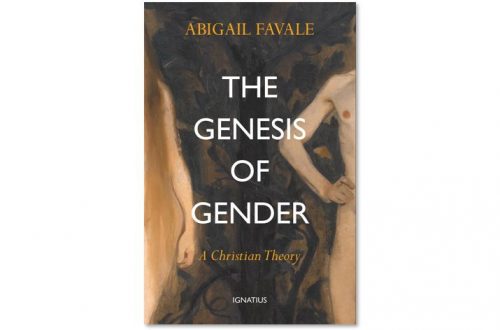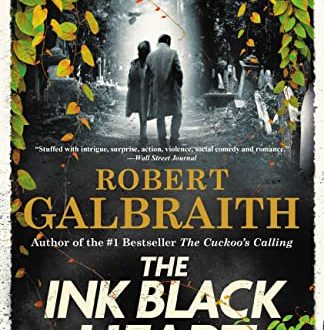Earlier this week, I finished Robin Diangelo’s New York Times #1 Bestselling book White Fragility: Why It’s So Hard for White People To Talk about Racism (Beacon, 2018). A lot of ink has already been spilled over this book, and I suppose that I have little more to add. I won’t write a full review here. If you want that, I recommend Tim Challies’ three–part series. Nevertheless, I do have some observations that I would like to add to the conversation.
The basic gist of the book is this. White people participate in a complex system of privilege and white supremacy. Whether they mean to or not, they are therefore racists. If you try to reveal to a white person how their racial superiority manifests itself in social interactions, white people become defensive and obtuse—a phenomenon Diangelo labels “white fragility.” White people are so committed to the idea that they aren’t racists, that they can barely tolerate any suggestion that they are. Their “white fragility” makes them militantly self-unaware and resistant to critique.
As others have already noted, the book is bad. Not just a little bad. A lot bad. Why? Because it puts hands and feet to a noxious ideology called Critical Race Theory (CRT). In fact, you might say that White Fragility is a project in applied CRT. As such, it is a toxic stew of racial animus masquerading as erudite theory. Its prescriptions are pedantic, infantilizing, and guaranteed to increase racial conflict rather than easing it.
I read this book not merely because I was curious about social theory. I read it because the categories of White Fragility are fast becoming the dominant way that people think about race-relations. So I read this book as a Christian who is trying to understand the claims of applied CRT. While reading, it became very clear that the problems with this project aren’t merely academic. The errors of this work are deeply antithetical to Christianity itself. Why? Because White Fragility sets forth an alternate worldview—one that redefines human personhood, what has gone wrong with the world, and what it will take to set things right.
The casual Christian reader may very well miss some of the things I’m talking about simply because the book is so subversive. It uses words and categories that we are all familiar with, but it redefines them in a way consonant with CRT. For example, the idea of racism has been around a long time. But Diangelo (in keeping with the wider claims of CRT) redefines racism so that it refers not to racial animus or partiality but to “a far-reaching system that functions independently from the intentions or self-images of individual actors” (20). In short, systemic racism is racism.
Diangelo contends that Prejudice is “pre-judgment about another person based on the social groups to which that person belongs” (19). Discrimination is “action based on prejudice” (20). Both prejudice and discrimination require human agency and are thus morally implicated. But racism itself is different. Racism is not like prejudice or discrimination because you don’t need any moral agency to be involved in racism. One is a racist simply by virtue of their being white—a category of persons that benefit from privilege and white supremacy.
Racism—like other forms of oppression—occurs when a racial group’s prejudice is backed by legal authority and institutional control (p. 21). Since white people are by and large in charge of legal authorities and institutional structures, they are the only ones who can actually be racists. Black people by definition cannot be racist. They can be prejudiced and even discriminate, but they can’t be racist because they don’t as a group have the power to enforce racial animus (p. 22).
Diangelo contends that racism is propped up by ideologies such as individualism, capitalism, democracy, consumerism, and meritocracy (the idea that anyone can succeed if they work hard, p. 21). These ideologies—which are at the heart of the American experiment—underwrite racism and are therefore a part of the problem.
Again, I read this book as a Christian trying to discern how applied CRT stacks-up against what Christianity teaches. And it is here that the problems begin to multiply. Diangelo (along with CRT) has redefined racism so that it is no longer a morally implicated concept. In that way, racism in CRT is not what people commonly mean by the term racism. The common usage in the American Heritage Dictionary, for example, defines racism as “discrimination or prejudice based on race.” It involves human agency and implies moral accountability. But no human agency or moral responsibility need be present for a person to be involved with racism as defined by Diangelo.
Even more serious, Diangelo’s definition of racism falls short of what my own denomination confesses to believe about racism. I am a Southern Baptist Christian, and my denomination’s confessional statement treats racism as a sin alongside greed, selfishness, sexual immorality, adultery, homosexuality, and pornography. In other words, racism is a vice that the Christian must renounce and oppose wherever he encounters it—be it in his own heart or in the surrounding culture. The key thing is that our confession says that racism requires moral agency and responsibility.
Does the racism in Diangelo’s definition match what our confession says? It does not, and that is where the category fails. In fact in Diangelo’s formulation, one can challenge racism but one can never really be rid of it, much less saved from it. There can be no repentance from this particular evil. As long as you are white, you will be a racist. There is nothing to be done about it.
This perspective cannot be reconciled with what Christianity teaches. The Bible teaches that racial partiality (both conscious and unconscious) is a sin. It requires repentance and can only truly be eliminated by the grace of God offered in the gospel of Jesus Christ. According to this gospel, the Lord’s arm is not too short to save (Isaiah 59:1). Through Christ, God puts to death all of our racially malignant thoughts and attitudes and predilections. There is real salvation, real hope, real reconciliation. None of that is on offer in CRT. All of it is on offer in the gospel.
If you wish for racial healing, you must not accept a cure that is arguably worse than the disease. And yet that is what is on offer in White Fragility. Diangelo points out a lot of problems but provides no real solutions. The gospel of Jesus Christ, however, does have the solutions. It reveals the good, the beautiful, and the true and gives us guidance on what it really means to be reconciled and to flourish in God’s world. It even provides the antidote to culpable racism. Christians need to beware of the prescriptions of White Fragility. It is not leading people to this solution but away from it.






